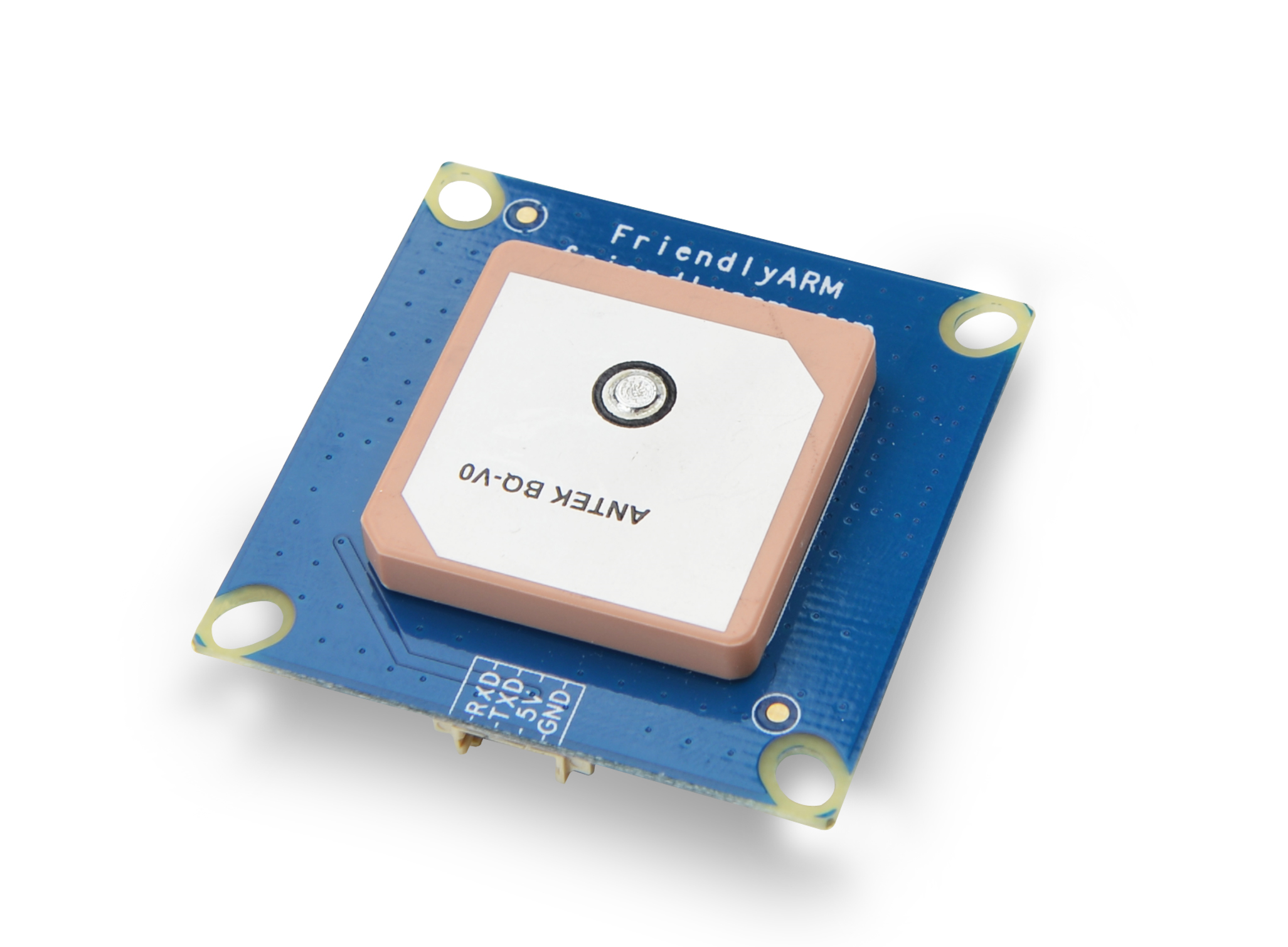Matrix - GPS
From FriendlyELEC WiKi
Contents
1 Introduction
The matrix GPS module is a small GPS module with high performance. It can be used in navigation devices, four-axle drones and etc.
- U-blox NEO-7M GPS module;
- MAXIM’s high gain LNA chip and high performance porcelain antenna;
- Support GPS and GLONASS(Russia's Navigation System);
- Serial Communication: baud rate 为9600, 8 data bits, no parity, 1 stop bit;
- Horizontal position accuracy: 2.5m CEP;
- Max navigation update rate: 10Hz;
- Time To First Fix: 30S;
- Sensitivity-Tracking & Navigation: -161dBm;
- Sensitivity-Cold Start: -148dBm;
- Protocol: NMEA(default)/UBX Binary;
- Operational Limits – Velocity: 500m/s;
- Operational Limits- Altitude: 50000m;
- TXD/RXD resistance: 510 Ohm;
- Working Temperature: -40 degree Celsius ~ 85 degree Celsius;
- Supply Voltage:: 5.0V;
- Supply Current: 22mA;
- Onboard LED. After the module is powered on the LED will turn on. If the module gets GPS data successfully the LED will be flashing
2 Features
- UART interface
- Small
- PCB Dimension(mm): 40 x 40
- Pin Description:
| Pin | Description |
| RXD | Receive |
| TXD | Transmit |
| 5V | Supply Voltage 5V |
| GND | Ground |
3 Basic Device Operation
- GPS is the abbreviated form of Global Positioning System. This system provides global users with continuous, real time and high precision location and time information.
- The current GPS consists of three major segments: the space segment, a control segment and a user segment.
- Each GPS satellite continually broadcasts a signal (carrier wave with modulation).The receiver measures the time of arrival of the signal. From the time of arrival and the time of transmission the receiver then computes its three-dimensional position
4 Connect to NanoPi 2
4.1 Hardware Connection
Please refer to the following connection diagram to connect the Matrix-GPS to the NanoPi 2:
GPS_NanoPi_2
Connection Details:
| Matrix-GPS | NanoPi 2 |
| RXD | Pin8 |
| TXD | Pin10 |
| 5V | Pin4 |
| GND | Pin6 |

